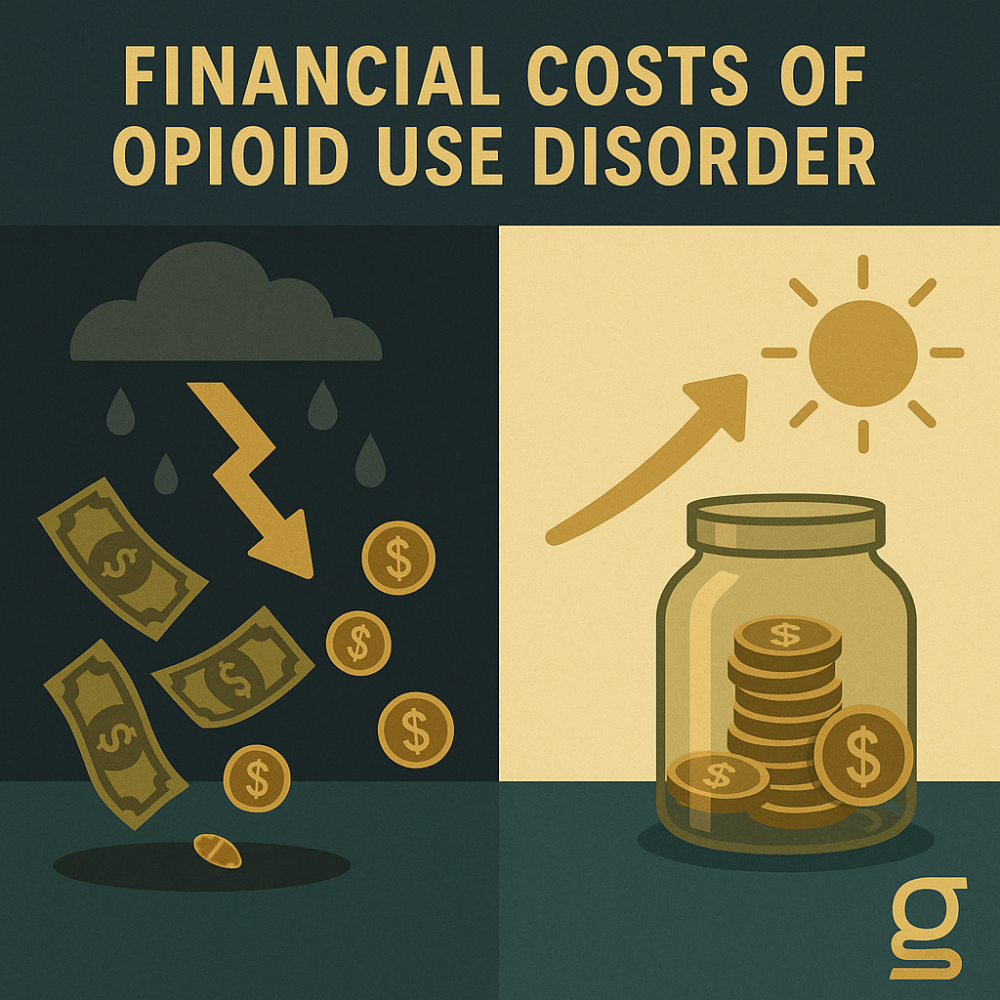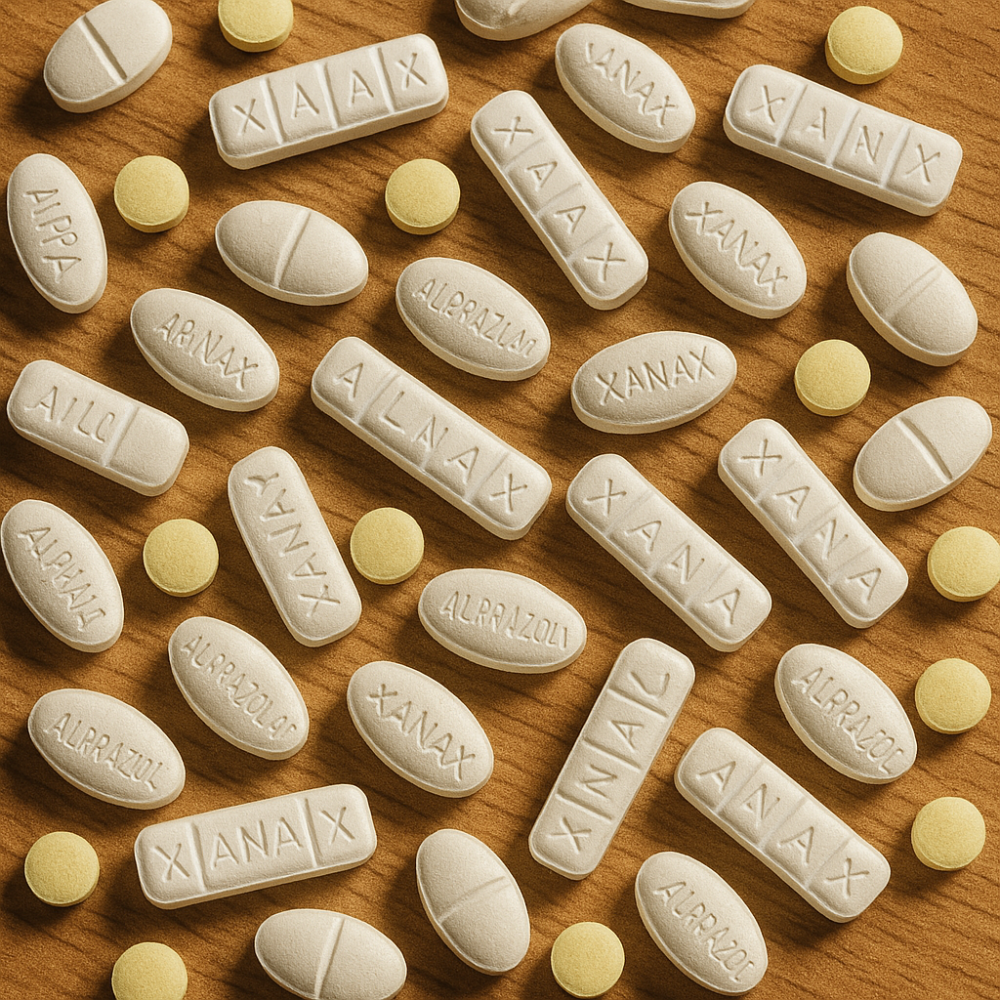Risks of Mixing Heroin and estazolam (ProSom®), flurazepam (Dalmane®), temazepam (Restoril®), triazolam (Halcion®), alprazolam (Xanax®), chlordiazepoxide (Librium®), clorazepate (Tranxene®), diazepam (Valium®), halazepam (Paxipam®), lorazepam (Ativan®), oxazepam (Serax®), prazepam (Centrax®), quazepam (Doral®), and Clonazepam (Klonopin®).
The misuse of drugs is a common concern, and when it comes to combining powerful substances like heroin and benzodiazepines, the stakes are even higher. The effect is a cocktail of health complications that can be life-threatening. It’s crucial to understand what Heroin and Benzodiazepines are and how they function independently. Both heroin and benzodiazepines have specific effects on the body and mind that make them appealing to some people, albeit for the wrong reasons.
Understanding Heroin
Heroin, one of the most notorious illegal drugs, is an opiate that provides an intense high to the user, making it incredibly addictive. It’s derived from morphine and presents itself as a white or brown powder or a black sticky substance known as ‘black tar heroin’.
The moment someone takes heroin, it enters the brain rapidly. There it is converted back into morphine and binds to opioid receptors. These receptors are located in many areas, particularly those involved in feelings of pain and pleasure. The high that users experience is a profound sense of relaxation and euphoria, a feeling that can be quickly addictive.
Understanding Benzodiazepines
Benzodiazepines, on the other hand, are legal prescription medications used to treat various mental disorders such as anxiety, panic attacks, and insomnia. Popular types include Xanax (alprazolam), Valium (diazepam), and Ativan (lorazepam).
These drugs work by enhancing the effect of the neurotransmitter gamma-aminobutyric acid (GABA) at the GABA-A receptor, resulting in sedative, hypnotic (sleep-inducing), anxiolytic (anti-anxiety), anticonvulsant, and muscle relaxant properties. However, misuse can lead to dependence, and withdrawal symptoms are notoriously severe, ranging from insomnia and anxiety to seizures and psychosis.
Why People Mix Heroin and Benzodiazepines
Understanding the reasons why individuals choose to mix these substances is critical to tackling the issue. Each drug has its appeal, but together they create a potent blend that poses significant risks.
Enhanced Euphoria and Relaxation
For many users, the attraction of combining heroin and benzodiazepines lies in the potential to enhance the high. Both substances alone can cause a sense of euphoria and relaxation, but together, these effects are magnified. The pleasure-seeking part of the brain, the reward system, is sent into overdrive.
This intense high, however, is ephemeral, and the body quickly builds a tolerance, needing more of the substances to achieve the same level of pleasure. This can lead to a dangerous cycle of increasing usage, making the risks of overdose and addiction ever more likely.
Masking Withdrawal Symptoms
Another reason for mixing these drugs is to alleviate the unpleasant withdrawal symptoms that come with heroin addiction. The soothing effects of benzodiazepines can temporarily mitigate symptoms like anxiety, restlessness, and insomnia.
Unfortunately, this relief is deceptive and potentially dangerous. By masking the withdrawal symptoms, benzodiazepines can enable a heroin habit and vice versa, leading to a vicious cycle of codependency.
The Risks of Combining Heroin and Benzodiazepines
The implications of combining heroin and benzodiazepines are grave, with a range of both immediate and long-term risks. These can affect not only the individual’s health but their relationships, work, and overall quality of life.
Increased Risk of Overdose
One of the most immediate and fatal risks is the increased chance of overdose. Both heroin and benzodiazepines have a sedating effect, slowing the body’s vital processes. When combined, these effects are amplified, making it easy to miscalculate the dose.
Benzodiazepine Overdose
A benzodiazepine overdose can cause severe symptoms such as drowsiness, confusion, slowed reflexes, and even coma. In extreme cases, it can be fatal, especially when combined with other substances like alcohol or opioids.
Heroin Overdose
Heroin overdoses are also a major concern. They can result in slow and shallow breathing, blue lips and nails, convulsions, coma, and even death. When combined with benzodiazepines, the risk is magnified.
Mental Health Consequences
Aside from the immediate threat of overdose, mixing heroin and benzodiazepines can have profound effects on mental health, creating a host of additional challenges for users.
Dependence and Addiction
The powerful high and relief from withdrawal symptoms can quickly lead to dependence on both substances. This can escalate to addiction, a chronic disease characterized by uncontrollable drug-seeking behavior despite its harmful consequences.
Aggravating Mental Health Disorders
Moreover, this combination can aggravate pre-existing mental health conditions. Anxiety, depression, and other disorders can be intensified, creating a destructive cycle where the user seeks more of the drugs to alleviate these worsening symptoms.
Physical Health Risks
The physical health implications of combining heroin and benzodiazepines are significant. These risks include damage to vital organs, systemic health issues, and even the risk of infectious diseases.
Damage to the heart, lungs, liver, and brain is common among long-term users. Respiratory depression is particularly dangerous, as both drugs can suppress the body’s ability to breathe. Infectious diseases like HIV/AIDS and Hepatitis C are also risks, particularly for those who inject heroin.
Specific Benzodiazepine Interactions with Heroin
It’s important to understand the possible dangers of mixing heroin with various benzodiazepines. Each combination carries significant risks and can lead to severe health consequences.
Risks of Combining Heroin and Estazolam (ProSom®)
Estazolam, a drug often prescribed to treat insomnia, works by calming the central nervous system. When combined with heroin, a potent opioid, the sedative effects of both substances are amplified. This can cause profound respiratory depression, a condition where breathing becomes dangerously slow and shallow. Consequently, the brain may not receive enough oxygen, potentially leading to brain damage or death.
Risks of Combining Heroin and Flurazepam (Dalmane®)
Flurazepam is another benzodiazepine medication used to treat insomnia. The drug works by affecting chemicals in the brain that may be unbalanced in people with sleep problems. When mixed with heroin, the sedative effects of flurazepam can be significantly enhanced, leading to severe drowsiness, cognitive impairment, and delayed reactions. Again, the greatest risk lies in the exacerbation of respiratory depression, which could be fatal.
Risks of Combining Heroin and Temazepam (Restoril®)
Temazepam is used for the treatment of severe insomnia. The medication helps individuals fall asleep and stay asleep throughout the night. However, when it’s mixed with heroin, the sedative effects of temazepam can lead to profound respiratory depression and drowsiness. Further, this combination can cause confusion, impaired coordination, and the risk of an overdose becomes significantly higher due to the intensified sedative effects.
Risks of Combining Heroin and Triazolam (Halcion®)
Triazolam, often prescribed for the short-term treatment of severe insomnia, enhances the effects of GABA, a natural chemical in the body, leading to a calming effect. When combined with heroin, the risks include severe respiratory depression, extreme drowsiness, and reduced motor control. Moreover, there’s a significant risk of overdose due to the compounded sedative effects of the two drugs.
Risks of Combining Heroin and Alprazolam (Xanax®)
Alprazolam is a benzodiazepine primarily used to treat disorders like anxiety and panic attacks. When mixed with heroin, it can lead to a potentially fatal overdose due to the intensification of sedative and respiratory depressing effects. This combination can also result in extreme drowsiness, slowed breathing, and even a coma.
Risks of Combining Heroin and Chlordiazepoxide (Librium®)
Chlordiazepoxide, used to manage anxiety disorders and withdrawal symptoms from alcohol and other drugs, has a calming effect on the brain and nerves. When mixed with heroin, it can cause slowed breathing, severe drowsiness, and coma due to the enhanced depressive effects on the central nervous system. The combination can be lethal, especially in cases of an overdose.
Risks of Combining Heroin and Clorazepate (Tranxene®)
Clorazepate is mainly used for treating anxiety and seizure disorders. The drug works by enhancing the effects of a certain natural chemical in the body (GABA). However, when combined with heroin, the outcome can result in significant respiratory depression, impaired motor control, and profound sedation. The risk of overdose is heightened with this combination, and it can prove fatal.
Risks of Combining Heroin and Diazepam (Valium®)
Diazepam is a versatile drug used for treating a variety of conditions like anxiety, alcohol withdrawal, and seizures. However, when mixed with heroin, it can lead to fatal respiratory depression, extreme drowsiness, and confusion. This is due to the amplification of diazepam’s sedative effects by heroin. Consequently, the risk of overdose and death is significantly increased.
Risks of Combining Heroin and Halazepam (Paxipam®)
Halazepam, a benzodiazepine medication used for anxiety disorders, is known for its sedative effects. When combined with heroin, it can cause severe respiratory depression, extreme drowsiness, and impaired coordination. The risk of overdose and death increases significantly, making it a dangerous and potentially deadly combination.
Risks of Combining Heroin and Lorazepam (Ativan®)
Lorazepam is often prescribed for managing anxiety disorders. It induces calming effects by enhancing the effects of a certain natural chemical in the body. When combined with heroin, this can lead to severe respiratory depression, extreme drowsiness, and impaired coordination. The risk of overdose and death is significantly increased with this combination, underscoring the danger of this mix.
Risks of Combining Heroin and Oxazepam (Serax®)
Oxazepam is a benzodiazepine medication used for treating anxiety and alcohol withdrawal symptoms. When mixed with heroin, it can lead to life-threatening respiratory depression, extreme drowsiness, and impaired motor control due to the combined sedative effects. The risk of overdose is significant with this combination.
Risks of Combining Heroin and Prazepam (Centrax®)
Prazepam, typically prescribed for anxiety, enhances the effect of GABA, a natural chemical in the body. However, when combined with heroin, it can result in severe respiratory depression, impaired motor control, and extreme drowsiness. The amplification of prazepam’s sedative effects by heroin significantly increases the risk of overdose and death.
Risks of Combining Heroin and Quazepam (Doral®)
Quazepam, used for treating insomnia, works by producing a calming effect on the brain and nerves. When combined with heroin, it can result in severe respiratory depression, extreme sedation, and impaired coordination. The risk of overdose is significantly heightened with this combination due to the compounded sedative effects.
Risks of Combining Heroin and Clonazepam (Klonopin®)
Clonazepam is a medication used for treating panic disorder and certain types of seizures. It works by enhancing the effects of GABA, a natural chemical in the body. Mixing clonazepam with heroin can lead to life-threatening respiratory depression, extreme drowsiness, impaired motor control, and even coma. The risk of overdose is significantly increased with this mixture, making it a potentially fatal combination.
Getting Help for Addiction
The dangers of combining heroin and benzodiazepines are severe, with risks extending far beyond immediate health effects. Despite the intense high or temporary relief from withdrawal symptoms, the long-term consequences are devastating and potentially fatal. However, recovery is possible, and help is available for those ready to take the first step.
At Gallus Medical Detox, we understand the devastating effects of drug addiction, especially with combinations as lethal as heroin and benzodiazepines. We offer personalized, medically-supervised detox programs for individuals struggling with substance abuse. Our compassionate and experienced team of healthcare professionals is committed to providing you with the highest level of care, helping you break free from the chains of addiction, and guiding you toward recovery.
The combination of heroin and benzodiazepines can lead to extreme drowsiness, impaired coordination, severe respiratory depression, and even death due to overdose. Understanding these dangers is crucial, and anyone caught in the vicious cycle of such substance abuse should seek immediate professional help. At Gallus Medical Detox, we’re here to help. Contact us today to start your journey towards recovery.
FAQs
What are the immediate effects of combining heroin and benzodiazepines?
The immediate effects include enhanced euphoria and relaxation. However, these effects come with increased risk of overdose and other severe health consequences.
Why do people combine heroin and benzodiazepines?
Users may combine these drugs to enhance the euphoria and relaxation provided by heroin or to mitigate unpleasant withdrawal symptoms.
What are the mental health risks of mixing these substances?
The combination can lead to heightened dependence and addiction, as well as exacerbation of existing mental health disorders like depression and anxiety.
What help is available for those struggling with substance abuse?
There are various treatment options, including therapy, medication-assisted treatment, and support groups. Seeking professional help is essential for recovery.
Can recovery from substance abuse be achieved?
Yes, recovery is possible with the right treatment and support. It requires commitment and perseverance, but many people successfully overcome addiction every day.
References
- National Institute on Drug Abuse. (2020). What is heroin and how is it used? Retrieved from https://www.drugabuse.gov/publications/research-reports/heroin/what-heroin
- American Psychiatric Association. (2013). Diagnostic and statistical manual of mental disorders (5th ed.). https://doi.org/10.1176/appi.books.9780890425596
- National Institute on Drug Abuse. (2018). Benzodiazepines and Opioids. Retrieved from https://www.drugabuse.gov/drug-topics/opioids/benzodiazepines-opioids
- Jones, J. D., Mogali, S., & Comer, S. D. (2012). Polydrug abuse: A review of opioid and benzodiazepine combination use. Drug and alcohol dependence, 125(1-2), 8–18. https://doi.org/10.1016/j.drugalcdep.2012.07.004
- Sun, E. C., Dixit, A., Humphreys, K., Darnall, B. D., Baker, L. C., & Mackey, S. (2017). Association between concurrent use of prescription opioids and benzodiazepines and overdose: retrospective analysis. BMJ (Clinical research ed.), 356, j760. https://doi.org/10.1136/bmj.j760
- Centers for Disease Control and Prevention. (2019). Drug Overdose Deaths. Retrieved from https://www.cdc.gov/drugoverdose/data/statedeaths.html
- World Health Organization. (2021). Information sheet on opioid overdose. Retrieved from https://www.who.int/news-room/fact-sheets/detail/opioid-overdose
- Jones CM, McAninch JK. Emergency Department Visits and Overdose Deaths From Combined Use of Opioids and Benzodiazepines. American Journal of Preventive Medicine. 2015;49(4):493-501. doi:10.1016/j.amepre.2015.03.040.
- Substance Abuse and Mental Health Services Administration. (2020). SAMHSA’s 2020 National Survey on Drug Use and Health (NSDUH). Retrieved from https://www.samhsa.gov/data/report/2020-nsduh-annual-national-report


 Steve B
Steve B 

 Casey Wilson
Casey Wilson